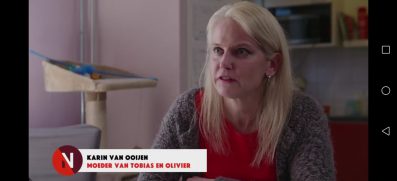Reactie op uitzending NieuwLicht Thuiszitters
Those at home: How does every child get a place in our education system?
The answer is simple, according to Parents’ Association Balans, although you would not expect it at first.
The vision that we also stand for after seeing NieuwLicht is: it is not the system of appropriate education that needs to be ‘changed’, but the way in which this is implemented.
We also share the opinion that the number of 15,000 people sitting at home is the tip of the iceberg. See also the article The number of people sitting at home is increasing again.
Maar daar is toch geen geld voor?
According to Carry Roozemond of Ingrado, appropriate education would promise that every child would receive Lamborghini-style education, while there would be funding for a middle-class car. The question is whether that statement is correct.
It rather seems that the education money is not going where it is intended. Namely in the classroom, to support the student and the teacher.
And the challenge becomes: how to deal with differences between children. Sometimes it costs little, sometimes more simply because it has to be done. And there is money: in October 2019, the AOB reported in the article How rich is my partnership that partnerships saw their reserves grow to 260 million euros.
Aantallen
Mrs Roozemond also says that in 999 out of 1000 ‘cases’ things do go well, but not with that one child.
This gives the impression that these are exceptions. However, that is not the case.
We already referred to an article above, which indicates, among other things, that people sitting at home are not always registered as such. In addition, there is a significant number of children who are not (yet) at home, but who are also not receiving (appropriate) education.
The Ministry of Education, Culture and Science should get a good idea of this. Illya Soffer from Elke(in) also confirms in the broadcast that the problem is many times greater than society suggests.
Onderwijs op maat
This while the children have the right to education. And in addition, the principle of ‘social return on investment’ comes into play, which means that students who are now at home and therefore do not have the opportunity for education or development, will cost society (more) money one way or the other.
Invest in this group now, Minister Slob. After all, their chances are decreasing. Customized education and therefore their well-being will pay for themselves in the future. Offer every child education that suits him or her. And be creative if there is no comprehensive offer.
It can also be done in a different way than just at school. Consider home education, distance education or at another location or through purchased private education.
Buitensluiten
And there is a third point, the moral-ethical side: children should not be excluded because of their (temporary) support needs in education. But this does happen.
We heard their parents tonight in NieuwLicht: ‘ My children are school dropouts. SWV has not been able to provide them with appropriate education. There is a lack of knowledge within the schools .’
We heard a child say: ‘It ’s not relaxing to sit at home. You have no one to play with. You just feel lonely.’
Oproep aan de minister
Minister Slob says in the broadcast that he plans to make the advice of the Appropriate Education Disputes Committee binding.
He also states that education and healthcare need to work together better in these ‘complex’ cases.
As far as Balance is concerned, these ideas of the Minister are not aimed at prevention. It is important to resolve any problems at an early stage. And not to let it escalate to the point where parents have to seek relief from a Disputes Committee or the judge. These procedures are lengthy, damage the relationship with the school and, most importantly, the child receives no education during that time.
Wat moeten we dan wel doen?
How do we ensure that all children feel comfortable and develop at school (or at another location)? And not everyone has to do the same, let alone be?
- By obliging school boards to facilitate their staff in the support they need.
- By no longer offering schools the opportunity to reject children and then brush the dust off their shoulders.
- By making inclusion possible: this can be done, for example, by deploying teaching assistants and/or by organizing the group size system and learning processes differently.
- By returning to more continuous supervision of the schools themselves. From 75 to 300 inspectors, who function as the former ‘school overseer’.
But moreover, by respecting every child’s worth and respecting the rights of parents. Every child growing up in the Netherlands has the right to education.
The right to education is included in the International Convention on the Rights of the Child. Balans also advocates this right.
Do you also have questions about the education of your child(ren)?
Call the Balance Advice Line 030-2255050


